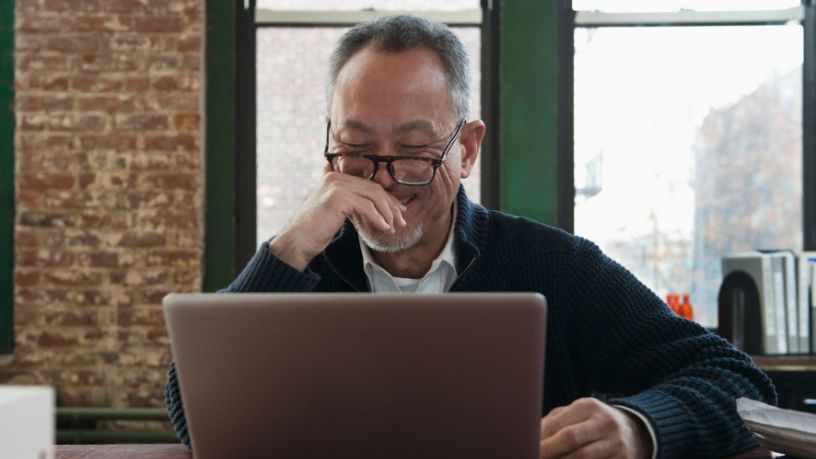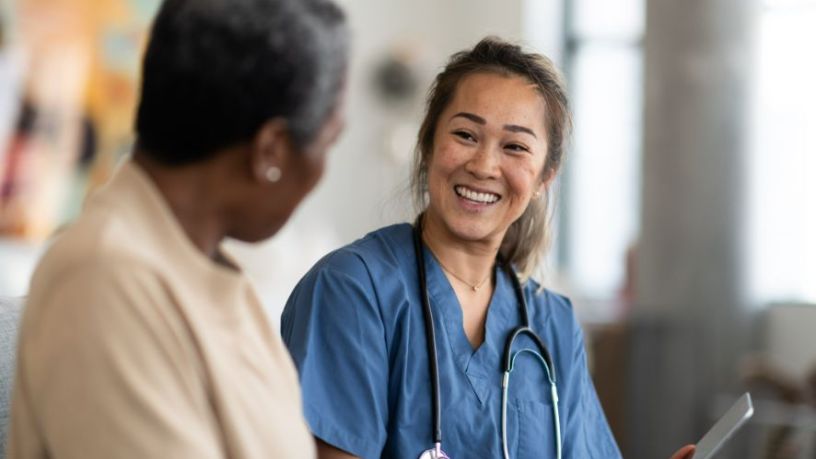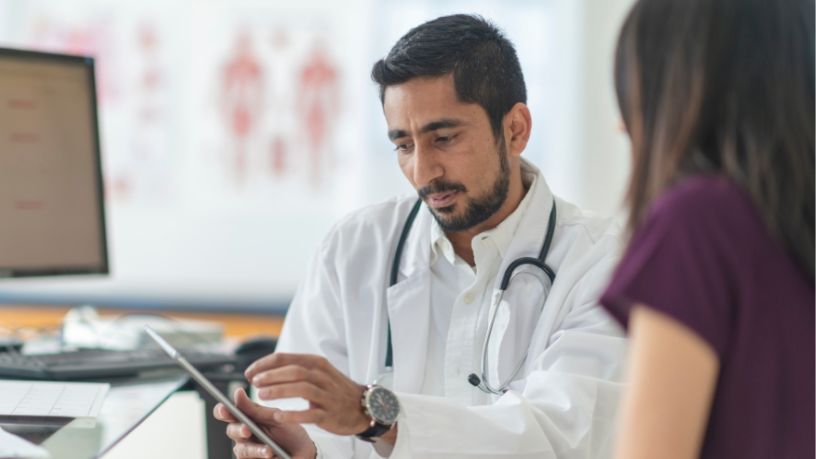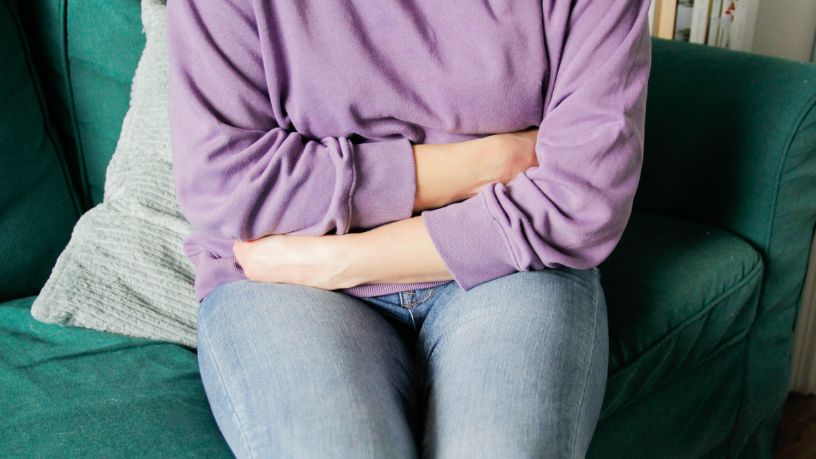Close to a million colonoscopies are performed in Australia each year.
On this page
Key takeaways
Colonoscopies are used to diagnose conditions such as bowel cancer.
Patients need to drink a strong laxative to clean out the bowel before the procedure.
Having any medical procedure can be daunting, so it helps to know why you’re having a colonoscopy and what the procedure involves.
What is a colonoscopy?
According to Dr Paul Urquhart, Gastroenterologist at Epworth Eastern, a colonoscopy is a safe, painless and relatively quick procedure. More than 900,000 colonoscopies are performed in Australia annually.1
“During the procedure, a long, thin, flexible camera (colonoscope) is passed through the anus and around the large bowel (colon). A colonoscopy typically takes 30 minutes and is done with the patient asleep and comfortable,” says Dr Urquhart.
The colonoscope has a light source, water jet and instrument channel allowing your doctor to inspect the bowel, take photos and biopsies and remove polyps.
Dr Urquhart says colonoscopies are crucial for the early detection and treatment of bowel cancer.
“All bowel cancer starts as a small, slow-growing polyp (growth). Over time, that small polyp will get bigger and eventually turn into cancer,” he says. “If we're able to find these polyps before they turn cancerous, then we can prevent cancer by removing them during the colonoscopy.”
Any biopsies or polyps that are removed may take up to a week to come back from pathology and you may need a follow-up appointment with your doctor.
When is a colonoscopy needed?
Dr Urquhart says people have colonoscopies to investigate symptoms including abdominal pain, blood in the stool or a change in bowel habits, whether that is diarrhoea or constipation.
“Apart from investigating symptoms, people with a family history of bowel cancer often undergo regular surveillance colonoscopies,” he says.
“People are also referred for colonoscopies through the National Bowel Cancer Screening Program, where people [aged between 45 to 74] are sent a kit every 2 years. This kit looks for microscopic amounts of blood in the stool and if it’s positive, it may indicate a polyp or cancer.”
How to prepare for your colonoscopy
As it involves diarrhoea, preparing for a colonoscopy is the most challenging part of the procedure for most patients, says Dr Urquhart. This should be done at home where there is easy access to a toilet. He reassures patients, though, by noting that medical advances over the years have made preparation for the procedure more tolerable.
“It’s important to make sure the bowel is as clean as possible for the procedure so that we get the best views and perform the highest quality examination,” he says.
“The patient will be given instructions by their doctor that typically involves modifying their diet the day before, and then drinking a strong laxative called bowel preparation. The patient will be given instructions about the timing and how much to drink by their doctor.”
Dr Urquhart recommends mixing up the preparation, then putting it in the fridge for half an hour to chill. “Sometimes people find it’s easier to drink,” he says. “If they feel a bit nauseated, I suggest having a break for half an hour, then go back and finish taking it.”
It is very important people to try to remain well hydrated, as a lack of fluids can make them feel unwell or give them a headache.
If you take regular medication, particularly diabetic or blood thinning medications, it’s important to talk to your doctor before you start the bowel preparation.
What to expect during a colonoscopy
Once the bowel preparation is completed, the hard work is done from a patient’s perspective. For the procedure, patients are positioned on their left side, then sedated before the colonoscope is inserted into their colon. Carbon dioxide is pumped into the bowel to enable the doctor to examine the colon lining.
“Carbon dioxide is absorbed quickly, so patients wake up with minimal discomfort,” Dr Urquhart says.
“Your doctor will discuss what they find on the day with you after the procedure. Any polyps removed or biopsies taken may take up to a week to come back and you’ll need a follow-up appointment.”
Patients are monitored in recovery for an hour or so until their sedation wears off. You’ll need to arrange for someone to drive you home, and Dr Urquhart advises not drinking alcohol for the rest of the day. Otherwise, he says, you can resume a normal diet as soon as you go home.
Going to hospital
Be informed. Read the 'going to hospital guide' before selecting your hospital.
Are there risks with the procedure?
Dr Urquhart emphasises that colonoscopies are very safe procedures and complications are very rare.
“The main risks are bleeding or perforation (small tear) to the bowel wall, but these are very uncommon,” he says.
Always contact your doctor or the hospital if you have any concerns or symptoms that you are worried about after having the procedure.
Resources
Look at the Gastroenterologist Society of Australia’s patient resources for information about bowel cancer prevention, colonoscopies, gastroscopies and more.
The National Bowel Cancer Screening Program provides information and resources, including free screening kits to eligible Australians.
Bowel Cancer Australia offers support online or over the phone on 1800 727 336.

At Bupa, trust is everything
Our health and wellbeing information is regularly reviewed and maintained by a team of healthcare experts, to ensure its relevancy and accuracy. Everyone's health journey is unique and health outcomes vary from person to person.
This content is not a replacement for personalised and specific medical, healthcare, or other professional advice. If you have concerns about your health, see your doctor or other health professional.
1Australian Commission on Safety and Quality in Health Care. (2024). Why the Colonoscopy Clinical Care Standard is needed. Australian Commission on Safety and Quality in Health Care.
You might also like...
Colonoscopy
A colonoscopy is performed to investigate symptoms that affect your bowel. So, how does it work, and what should you expect if you’re having one?
What to expect when you have a gastroscopy
Are you having a gastroscopy? We speak to a gastroenterologist to answer common questions about this quick and simple procedure so you can be prepared.
Gastroscopy (endoscopy)
Gastroscopy is a procedure that allows a doctor to look inside your oesophagus, stomach and part of your small intestine. Find out how it works.
Inflammatory bowel disease (IBD): The basics
Inflammatory bowel disease (IBD) is a serious chronic illness that can be managed with the right support.





